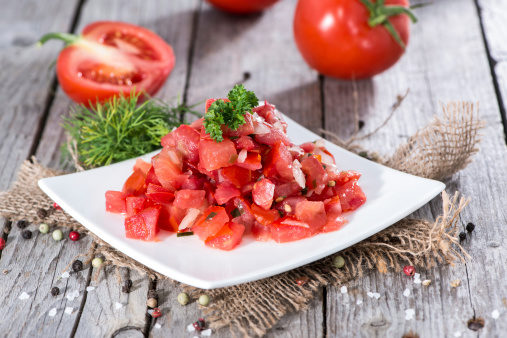Researchers split participants into several groups: a placebo group, a group treated with 15mg of synthetic lycopene, and TNC treatment standardized to 5, 15, and 30mg of lycopene, although the TNC also contains other nutrients, including phytofluene and phytoene.
Treatment with TNC standardized for 15 and 30mg of lycopene was associated with significant reductions in mean systolic blood pressure, the study found, while 5mg of TNC and 15mg synthetic lycopene had no significant effect.
The increase in blood levels of lycopene, phytoene, and phytofluene was dose dependent, but the rate of reduction in blood pressure with respect to treatment time for the 15mg and 30mg groups was nearly the same, only differing towards the end—blood pressure dropped by nearly 10 mm Hg over the course of 8 weeks in the 15mg group, but closer to 7 mm Hg in the same time frame in the 30mg group—suggesting that TNC standardized to 15mg of lycopene is the optimal dose.
Related: Lycored Awarded Grand Stevie at American Business Awards Vitamin D Deficiency in Childhood Associated with High Blood Pressure, Study Suggests Study: Kyolic Aged Garlic Extract Effectively Reduces Blood Pressure
The researchers come to the conclusion that TNC was well-tolerated and efficacious. They note that reasonable consumption of tomatoes—100-200g per day—will supply 4-8mg of lycopene.Lycored’s head of science and nutrition, Dr. Karin Hermoni, said in a press release: “This research reflects the evolution of our cardio-metabolic journey. One of its aims was to compare the effects on blood pressure of pure synthetic lycopene as a standalone with that of the entire nutrient and carotenoid mixture from the tomato. The results suggest that the myriad active nutrients our extract contains work synergistically to drive significant benefits. This study provides tangible evidence supporting the dose of tomato phytonutrients, and specifically of lycopene, that we recommend to deliver benefits for cardio-metabolic health. These results are only part of a full program examining the bioavailability and efficacy of tomato phytonutrients.”










